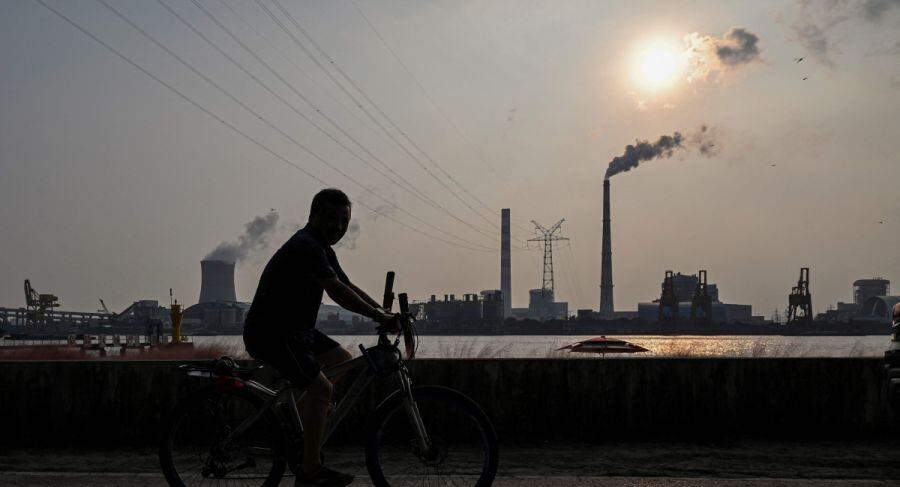
The air pollution It caused 8.1 million deaths worldwide in 2021, and has become the second cause of death, even in children under five years of age, according to a report published this Wednesday by UNICEF and the Health Effects Institute (HEI) of USA.
The fifth edition of the ‘State of Global Air’ (SoGA) by HEI, an independent non-profit research organization, which has been produced for the first time in collaboration with UNICEF, further reveals that exposure to Air pollution was linked to more than 700,000 deaths of children under five years of age.
At least 500,000 of these child deaths are linked to air pollution in homes due to the use of stoves with polluting fuels, especially in Africa and Asia. However, there has been a reduction in 53% in the infant mortality rate in children under five years of age since 2000 thanks to access to clean energy.
The report includes data from more than 200 countries and territories around the world, indicating that almost everyone on the planet breathes unhealthy levels of air pollution daily.
The new SoGA Report points out that among the biggest air pollutants are fine particles (PM2.5), household air pollution, ozone (O3) and nitrogen dioxide (NO2), in an analysis of data collected by the 2021 Global Burden study.
Air pollution and climate change
PM2.5 air pollution comes from the burning of fossil fuels and biomass in sectors such as transport, homes, coal-fired power plants, industrial activities or forest fires.
These emissions not only affect people’s health, but also contribute to the greenhouse gases (GHG) that produce the “global warming”.
For the first time, this year’s report includes exposure levels and health-related effects of nitrogen dioxide (NO2), including the impact of NO2 exposure on the development of childhood asthma.
Health impacts
After high blood pressure problems in adults and malnutrition in children under five years of age, poor air quality has become the second cause of death.
The researchers further point out that “many millions of people” suffer from debilitating chronic diseases, which puts enormous pressure on health care systems, economies and society, the document states.
Children under five years old are “especially vulnerable”with health effects such as premature birth, low birth weight, asthma and other lung diseases.
“Despite advances in maternal and child health, almost 2,000 children under five years of age die every day due to the health impacts of air pollution.””said UNICEF Deputy Executive Director Kitty van der Heijden.
“We hope the State of the World’s Air report provides both the information and the inspiration for change.”said the president of the HEI, Elena Craft, and stressed that improving air quality and global public health “It is practical and feasible.”
In regions such as Latin America, Africa and Asia, measures are being adopted to improve air quality, such as the installation of air pollution monitoring networks, the application of stricter air quality policies or the compensation of air pollution related to traffic, such as the use of hybrid or electric vehicles, according to the report.
It may interest you
- Breathing polluted air increases risk of depression, study says
- Air pollution costs the world US$8 billion a day
- Human sweat pollutes the air and sticks to the walls of buildings
Source: Gestion
Ricardo is a renowned author and journalist, known for his exceptional writing on top-news stories. He currently works as a writer at the 247 News Agency, where he is known for his ability to deliver breaking news and insightful analysis on the most pressing issues of the day.












